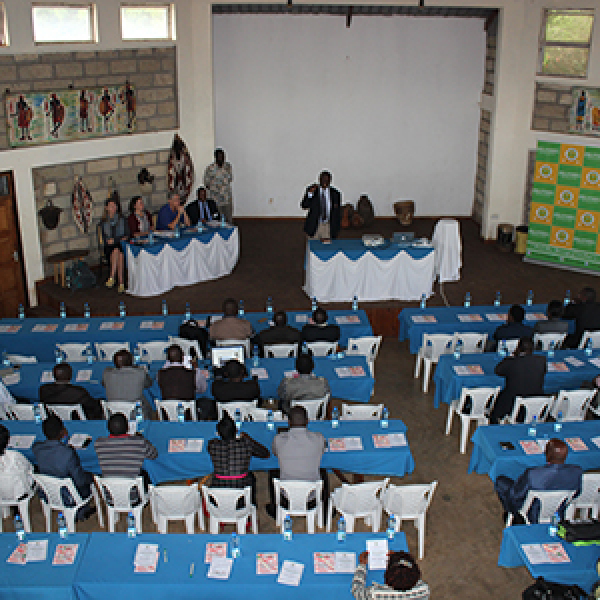University Partnership Brings Research Training to Kenya

Researchers from the University of Michigan School of Medicine, College of Pharmacy and Michigan Institute for Clinical & Health Research (MICHR) recently convened the Inaugural Hands-on Clinical Research Training Workshop in Meru, Kenya at the Thiiri Center.
Held in partnership with Meru University of Science and Technology (MUST), Eastern Community Medical Consultants Clinic and Consolata Hospital Nkubu Meru, this workshop represents more than a decade-long research relationship between local researchers and the University of Michigan. Faculty from the University of Michigan included Daniel Clauw, MD (Department of Anesthesiology and MICHR), Elizabeth Jackson, MD MPH (Division of Cardiovascular Medicine), and Vicki Ellingrod, PharmD (College of Pharmacy and MICHR). Local participants included Dr. Alex Wamachi, who reviewed local Investigational Review Board (IRB) regulations as well as opportunities for grant funding in Meru, Kenya and Dr. Peter Kenneth Ndege, who served as overall conference organizer.
The Michigan leadership group has been traveling to Meru yearly to do research projects on important health issues identified by residents in the region. Some of the work has focused on malaria testing, chronic pain management, and medication usage and adherence. The Michigan leadership team has long relied on local clinician and partners, as well as local citizen to help facilitate this work. Through these interactions, the need for more formal training in research was expressed by clinicians in the Meru region. Therefore, the purpose of this workshop was to provide local clinicians and academic researchers within the Meru area practical training on how to design, conduct and analyze clinical research, and write successful grant applications. More than 110 participants took part in the two-day, hands-on workshop that included didactic sessions followed by working in groups to design their own clinical study.
When asked what was the most helpful part of the workshop, Dr. Frederick Mawira commented, “the small groups were…because they allowed you to practice your knowledge” and “working with a team you share your ideas.” Each small group was asked to either work on a chosen research question or develop a new research question themselves. Dr. Pauline Klanzallah commented that the teams were nice because you “were able to choose an important topic,” which was evident from the research project proposed that varied from the relationship between pesticide use and increases in certain cancers to educational interventions to increase use of intrauterine contraceptive devices. After working in this small group setting, the teams were then asked to present their work to the entire group for feedback.
The curriculum used for the program was originally developed by MICHR’s Education & Mentoring Group, which is funded through the Clinical and Translational Science Award (CTSA) by the NIH’s National Center for Advancement of Translational Science (NCATS). Some of the topics covered as part of the program included identifying your clinical questions, writing your aims and hypotheses, how to design your study, good clinical practice regulations for clinical studies, and how to write a successful grant application. Dr. Pauline Klanzallah commented that “the introductory part…simplified the main issue of clinical research,” and there were many others that echoed her sentiments.
Given the feedback and success of this international partnership, a second clinical research workshop is being planned for February/March, 2018.



